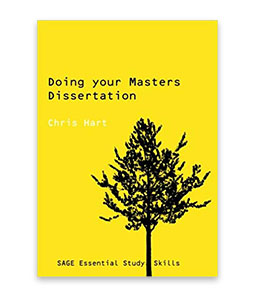- My Library Account
- Collections

Collections
The Library provides access to books, electronic resources, archives, special collections, and more to support your learning and research.
- Research

Research
The Library is committed to supporting your research needs with expert guidance and resources.
- Studying
- Academic Skills Service for Students
- Academic Writing Centre
- Assistive Technology Area
- Borrowing Limits, Lost Books & Fines
- Digital Literacy
- Equipment & More
- Group Study Rooms
- Library & IT Service Desk
- MakerSpace for Students
- Past Exam Papers
- Photocopying & Printing
- Shannon College Library
- Study Spaces
- Using Other Libraries

Studying
The Library has all the resources and supports you need to be successful in your studies at undergraduate and postgraduate level. Whether you're just starting your studies or working on your final project, we're here to help.
- Teaching

Teaching
We are here to help lecturers and academic staff deliver quality teaching and support their students' success.
- About

- Workshops & Events
Doing Your Masters Dissertation Review
Hart, Chris. Doing Your Master's Dissertation: Realizing Your Potential as a Social Scientist. London: Sage Publications, 2005
Review by Fion Lau

The subtitle of Chris Hart's Doing Your Master's Dissertation does not appear on either the front cover or the spine of the book, and there is only one brief mention of the social sciences at the bottom of the back cover - thus it is not immediately clear that this book is specifically geared towards students in the social sciences. Still, a brief glance through the book shows that it would not only be a good book for social science students to look at, but also for students in other disciplines; a fair bit of Hart's advice and guidelines could be generalised to apply broadly for any dissertation.
Students may reach the postgraduate level and believe they know what they are doing in terms of research and academic work and may therefore be hesitant to pick up a book like this. However, this book (and others like it) can provide a lot of good reminders even for those students, in addition to providing guidance for students who are not quite as confident about their academic writing. The text attempts to be accessible without being patronising - tempering its potential to be patronising with an acknowledgement that "it may seem a little patronizing in parts" (32) and including various charts and diagrams throughout the text to help illustrate Hart's points, making it easier for readers to process the information he provides.
Hart does not only address the actual writing of the dissertation; his book begins with the earliest stages of approaching a dissertation: choosing a course and transitioning into one. He also offers advice about how to manage one's time and one's relationships, given that writing a dissertation is a substantial commitment.
One of the most pertinent points that Hart makes is that you do not start writing a dissertation only after having everything start to finish; you start writing when you do your research, and your text will go through multiple iterations before becoming part of your dissertation draft. He takes the reader through the entire process, beginning with a discussion of what the goal of a dissertation is, as well as what mistakes students make when choosing topics and what kinds of features help identify good topics. He then moves toward a discussion of the general structure of a dissertation (e.g., its various parts/chapters), and describes different types of dissertations a student can write.
Hart discusses what would be considered "the literature" for a postgraduate project and how to search and review said literature - as well as why doing so is important. He provides hints for how to search for relevant literature and explains how to analyse and review the literature you have found.
Hart's book is clearly geared towards the social sciences and, for students in those disciplines, there are helpful chapters and sections discussing methodologies, data collection, ethics and approaches to research. However, anyone writing a dissertation and looking for guidance can find this book helpful. Hart's book attempts to lay out very clearly the elements of a dissertation, as well as different ways of approaching both the research and the writing.
As helpful as this book can be, if you are looking specifically for a text to help you with the nuts and bolts of writing - things like grammar and mechanics - or with citations and constructing bibliographies, this will not be the one you should reach for.











